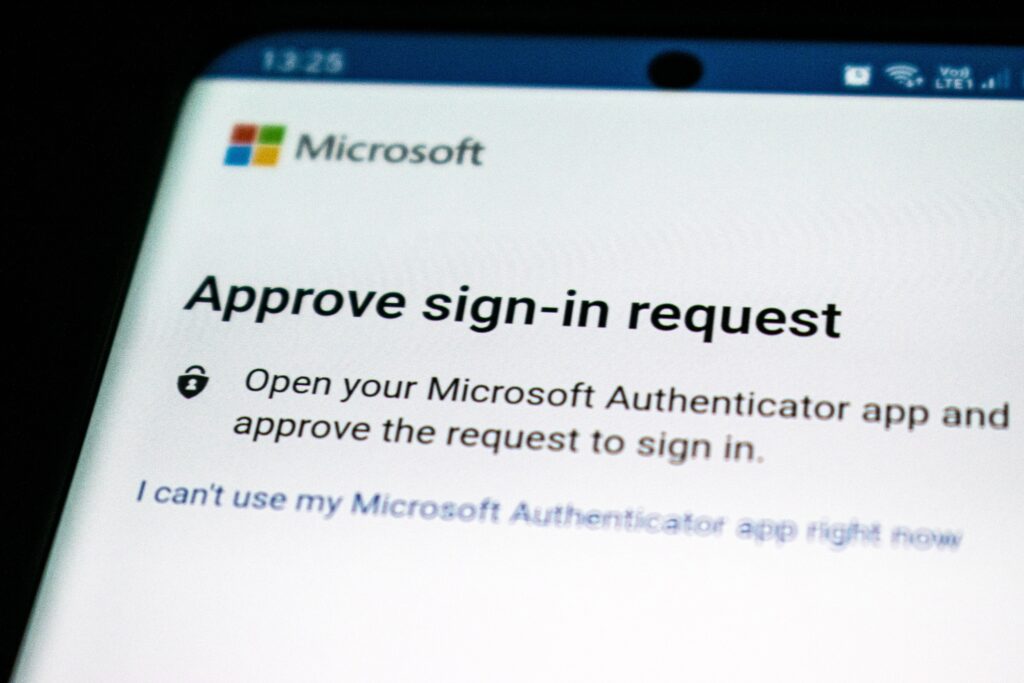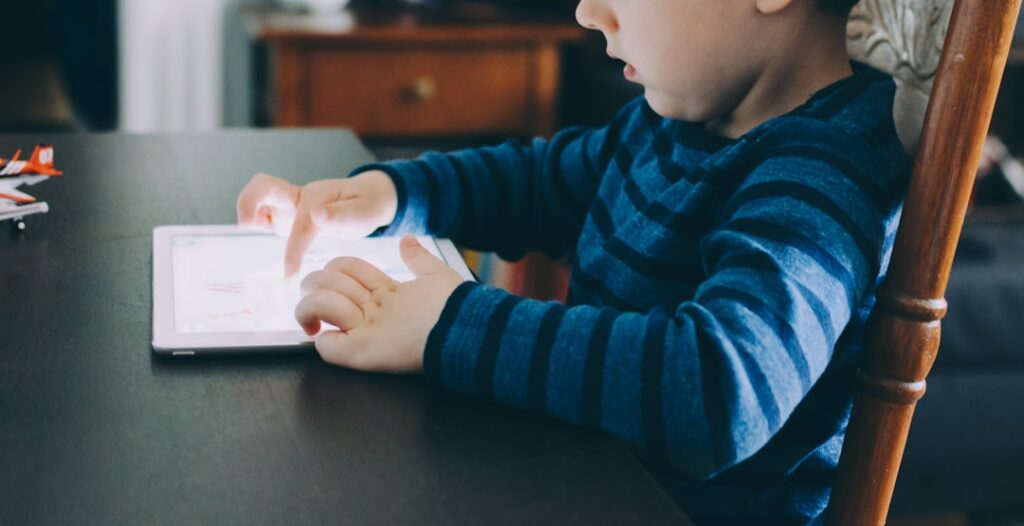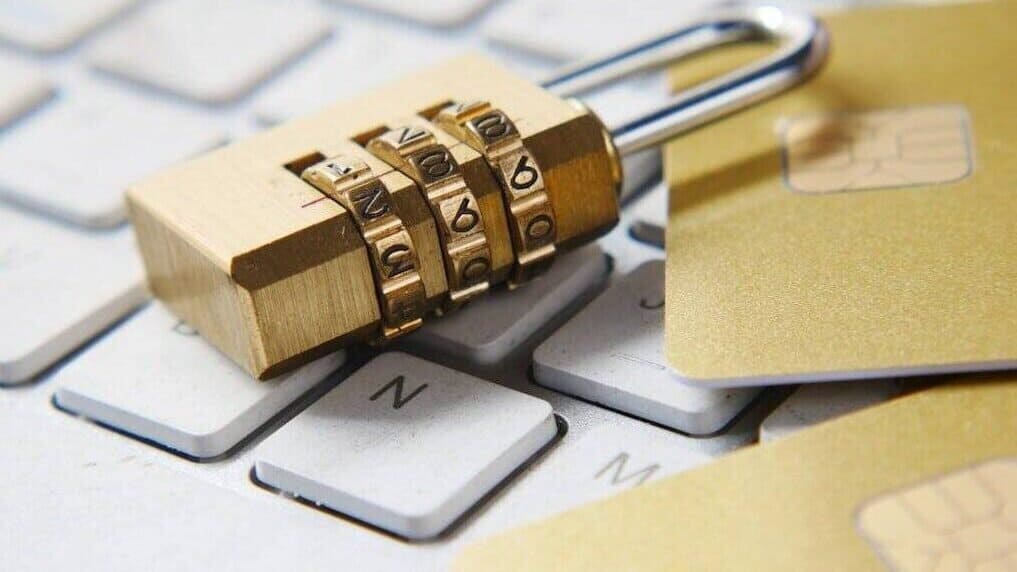When we talk about holistic health and digital wellbeing, we usually think about our physical fitness, mental clarity, emotional balance, and spiritual wellness. Holistic health is all about caring for the whole person—body, mind, and spirit—in harmony. But in today’s digital age, there’s one vital aspect that often gets overlooked: cyber hygiene.
Just like brushing your teeth or eating nutritious food protects your physical health, practicing good cyber hygiene protects your digital wellbeing. This digital wellbeing, in turn, deeply impacts your overall holistic health. At Bison Security Co., we believe that maintaining strong cyber hygiene is essential—not just to protect your devices and data, but to support your physical, mental, emotional, and spiritual wellness.
In this post, we’ll explore why cyber hygiene is a critical part of holistic health and digital wellbeing, and share practical tips to help you cultivate healthier digital habits starting today.

Table of Contents
- 1 Physical Health and Cyber Hygiene: The Hidden Connection
- 2 Mental and Emotional Wellbeing: How Cyber Hygiene Supports Your Mind
- 3 Spiritual and Social Wellbeing: Protecting Your Digital Soul
- 4 Practical Cyber Hygiene Tips to Support Your Holistic Health
- 4.1 1. Keep Software and Devices Updated
- 4.2 2. Use Strong, Unique Passwords and Multi-Factor Authentication
- 4.3 3. Set Mindful Screen Time Boundaries
- 4.4 4. Protect Your Privacy Online
- 4.5 5. Use Security Tools Like VPNs, Firewalls, and Content Filters
- 4.6 6. Educate Your Family and Create a Family Cybersecurity Plan
- 5 Conclusion: Cyber Hygiene Is Self-Care for the Digital Age
- 6 Take Control of Your Digital Safety
Physical Health and Cyber Hygiene: The Hidden Connection
You might not immediately connect your online safety habits with your physical health, but they are deeply intertwined. As we explore the broader concept of holistic health and digital wellbeing, it becomes clear that your digital routines—whether personal or family-wide—play a direct role in physical wellness.
Sleep Disruption and Chronic Stress (For You and Your Kids)
It’s well known that screen time before bed can disrupt sleep, but it’s not just the blue light—it’s the constant flow of notifications, messages, and mentally stimulating content that keeps the brain in a heightened state. This digital overstimulation impacts your nervous system, elevates cortisol levels, and makes quality sleep harder to come by.
For children and teens, the stakes are even higher. Their developing brains and bodies need deep, consistent sleep for emotional regulation, learning, and immune health. When they’re exposed to late-night gaming, social media, or endless scrolling, their holistic health and digital wellbeing suffers.
Solution: Build healthier digital routines as a household. Set screen curfews, enable “Do Not Disturb” modes at night, and charge devices outside the bedroom. These simple cyber hygiene practices help improve sleep quality, reduce anxiety, and support holistic health and digital wellbeing across every age group.

Cybercrime Stress Affects the Whole Family
When a family member falls victim to identity theft, phishing, or ransomware, the emotional fallout is immediate—and it’s physical, too. Stress hormones spike, sleep suffers, and even physical symptoms like tension headaches or digestive issues can follow.
Children may not fully understand what’s going on, but they notice tension in the household. They might even internalize the anxiety, especially if the incident disrupts routines or finances. Teaching kids the basics of cyber hygiene—like avoiding suspicious links, using strong passwords, and understanding online risks—becomes an essential act of care.
Tip: Creating a family cybersecurity plan is one of the most impactful things you can do. Include routines for regular password updates, reminders about suspicious activity, and shared access to tools like a password manager (like Bitwarden) or encrypted cloud storage. Use network-level protection like our Bison SafeFilter to help enforce safer browsing habits for all ages.
When your family practices digital safety together, you’re not just protecting data—you’re protecting emotional stability, financial wellbeing, and the physical health that flows from lower stress levels. It’s a powerful expression of holistic health and digital wellbeing.

Ergonomics Matter—Especially for Growing Bodies
Whether you’re working from home or your kids are logged into summer learning, how you use your devices matters. Poor posture, long hours of sitting, and improper screen angles can lead to headaches, muscle tension, and long-term strain.
For kids, these habits are especially critical. They’re still growing—and spending hours slouched over a tablet can create issues that last into adulthood. Addressing digital ergonomics should be a non-negotiable part of your family’s digital wellbeing strategy.
Action Steps:
- Make sure everyone has a designated work or screen space, even if it’s makeshift
- Use cushions or books to raise screens to eye level
- Encourage 5–10 minute breaks every hour
- Use blue light filters and adjust brightness to prevent eye strain
These small changes, when made together, reinforce that holistic health and digital wellbeing are family priorities—not just individual choices.

Mental and Emotional Wellbeing: How Cyber Hygiene Supports Your Mind
Mental and emotional health are among the most vulnerable areas impacted by digital life. From scam emails and identity theft to nonstop screen time and exposure to harmful content, the digital world can strain even the most grounded individuals and families. That’s why prioritizing holistic health and digital wellbeing is so critical—it helps protect your peace of mind while building resilience in a hyperconnected world.
Anxiety from Online Threats
Cyber threats don’t just compromise data—they compromise your sense of safety. A phishing scam, identity theft incident, or breach of personal privacy can trigger overwhelming stress and a loss of control. These effects ripple through your mental and emotional wellbeing.
For parents, managing sensitive work or financial information while also keeping children safe online adds an extra layer of anxiety. For kids and teens, online bullying, exposure to mature content, or being tricked by scams can lead to anxiety, social withdrawal, depression, and even school performance issues.
That’s why strong cyber hygiene practices—such as keeping software updated, using strong passwords, enabling two-factor authentication (preferably through a trusted authenticator app like Google Authenticator or Microsoft Authenticator), and teaching kids how to spot suspicious content—are more than just best practices. They are acts of emotional protection. Integrating these habits into your daily life helps reinforce holistic health and digital wellbeing by creating a secure and resilient foundation in your online environments.

Limit Harmful Content with Smart Filters
One often overlooked contributor to emotional stress—especially for kids—is exposure to inappropriate or adult content. Whether it’s through social media, gaming platforms, or YouTube rabbit holes, children can quickly stumble into spaces that are not developmentally appropriate, often without even seeking them out.
Installing a content filtering solution like our Bison SafeFilter, combined with tools like Bark parental controls, helps shield young users from violent, explicit, or otherwise harmful material. This kind of digital boundary is essential to holistic health and digital wellbeing, ensuring that emotional development is supported, not undermined, by technology.
For families, this means fewer hard-to-explain situations, fewer negative behavioral side effects, and more confidence that your digital environment is aligned with your values.

Mindful Screen Time for the Whole Family
Constant pings, alerts, and algorithm-curated content don’t just distract—they drain mental energy. In both adults and children, unchecked screen time can lead to irritability, poor focus, and difficulty managing emotions.
One of the most powerful cyber hygiene practices is cultivating mindful screen time:
- Designate screen-free zones like bedrooms and dinner tables
- Use timers or downtime settings on apps and devices
- Encourage outdoor time, reading, or quiet hobbies as daily habits
- Make use of content-filtering and scheduling features through platforms like our Bison SafeFilter to help automate healthy rhythms
These steps are simple but transformative. They encourage reflection, reduce overstimulation, and foster a home culture rooted in holistic health and digital wellbeing.

Teaching Kids Healthy Digital Habits
Just like brushing teeth or eating vegetables, teaching kids about digital safety should be a normal part of family life. When kids understand why it’s important to have strong passwords, recognize phishing attempts, or take screen breaks, they’re empowered to protect themselves.
One effective way to reinforce this is by conducting regular “cyber check-ins.” Ask about what your kids are doing online, what new apps they’re using, or whether anything made them uncomfortable. These conversations normalize online safety and reinforce your role as a trusted guide—not just a digital gatekeeper.
You can even co-create a family cybersecurity plan that covers password hygiene, rules for sharing personal info, device use during travel, and what to do if something goes wrong. This approach strengthens not only your home’s digital safety, but also the emotional trust and transparency that contribute to holistic health and digital wellbeing.

Spiritual and Social Wellbeing: Protecting Your Digital Soul
When we talk about holistic health and digital wellbeing, physical and mental health often take center stage—but your spiritual and social wellness are equally important. In today’s connected world, our digital lives influence how we build relationships, express our values, and protect our sense of self. That’s why practicing strong cyber hygiene isn’t just technical—it’s a deeply personal, even spiritual, form of self-care.
Safe and Authentic Connections in a Digital World
At the heart of spiritual and social wellbeing is connection: connection to others, to purpose, and to truth. Whether you’re joining a virtual faith community, catching up with friends, or sharing family memories online, those moments of interaction are meaningful—and they deserve protection.
Cyber hygiene supports these connections by ensuring privacy, security, and trust. Using encrypted communication tools, adjusting your privacy settings, and avoiding oversharing help you create safer digital spaces where you can engage authentically. When you know your information is secure and your identity protected, you’re free to be present and real—core aspects of holistic health and digital wellbeing.
For families, it’s especially important to pass these values on to the next generation. Teach your children the importance of protecting their personal information, choosing their online communities wisely, and setting digital boundaries. These conversations may seem small, but they shape how kids understand trust, self-worth, and connection in the digital age.

Guarding Against Exploitation and Manipulation
Unfortunately, the same online tools that foster connection can also be used to exploit. Scammers, traffickers, and cyberbullies often target people where they’re most vulnerable—through social media messages, gaming chats, and fake profiles. These digital predators manipulate trust, pretending to be someone they’re not in order to harm.
Cyber hygiene becomes a spiritual defense mechanism here. Recognizing phishing attempts, avoiding suspicious links, and reporting inappropriate behavior help guard not just your data, but your dignity and peace of mind. These practices are a powerful way to protect your values, your emotional safety, and your integrity.
And again, this is critical for families. Children and teens are still developing the judgment and confidence to navigate complex online interactions. That’s why proactive steps—like using content filters, setting up device usage alerts, and having ongoing family check-ins—are essential to protecting their social and spiritual development.
By incorporating holistic health and digital wellbeing into your family’s digital routines, you help your kids grow up with a clear understanding of self-respect, empathy, and digital citizenship.

A Digital Practice That Reflects Your Values
Think of your digital habits as an extension of your deeper beliefs. Just as you might meditate, pray, or practice gratitude, you can approach online life with mindfulness and intention. That includes choosing who to engage with, setting boundaries around your time and energy, and being aware of how your digital activity influences your emotions and relationships.
When your cyber hygiene reflects your values, it supports a stronger sense of wholeness and alignment. You aren’t just protecting devices—you’re protecting your identity, your relationships, and your inner peace.
And when your whole household participates—when kids learn to be safe and kind online, when parents set examples of mindful digital use—you create a shared environment rooted in trust and awareness. That’s the heart of holistic health and digital wellbeing.

Practical Cyber Hygiene Tips to Support Your Holistic Health
Now that we’ve explored how digital habits affect your mind, body, spirit, and relationships, it’s time to put that knowledge into action. Integrating cyber hygiene into your daily routine is a powerful way to support holistic health and digital wellbeing—not just for yourself, but for your entire family.
Here are practical, high-impact ways to protect your digital life and improve your overall wellbeing:
1. Keep Software and Devices Updated
Outdated software is a goldmine for hackers. Regular updates close off known vulnerabilities and keep your devices secure.
Set all your devices—phones, tablets, laptops, and smart home tech—to update automatically. These small technical habits are the foundation of holistic health and digital wellbeing because they reduce your stress and risk of digital disruption.
2. Use Strong, Unique Passwords and Multi-Factor Authentication
Weak or reused passwords are a leading cause of data breaches. Use a password manager (like Bitwarden) to generate and store strong, unique passwords. Pair that with multi-factor authentication (MFA) to add another layer of protection.
This is especially important for families. Kids often reuse simple passwords or share them with friends. Teach them how to create safe, memorable passphrases and why it matters—it’s part of building lifelong digital responsibility that supports their holistic health and digital wellbeing.

3. Set Mindful Screen Time Boundaries
Device overload can drain your energy and disrupt your sleep. Limit screen use before bedtime, turn off non-essential notifications, and schedule regular breaks—especially if you work or study online for hours each day.
Encourage device-free zones in your home—like bedrooms or the dinner table—to create healthier habits for the whole family. This balance between digital and offline time plays a crucial role in maintaining holistic health and digital wellbeing.
4. Protect Your Privacy Online
From social media to smart apps, your digital footprint is larger than you think. Adjust your privacy settings, avoid posting real-time location updates, and use encrypted messaging platforms for sensitive communication.
Kids should understand that what they post—even in private chats—can have long-term consequences. Talk to them about protecting their digital identity and setting healthy boundaries online. This fosters both emotional safety and holistic health and digital wellbeing at any age.
5. Use Security Tools Like VPNs, Firewalls, and Content Filters
A secure network is your first line of defense. Install a reliable VPN (especially when using public Wi-Fi), enable firewalls, and consider content filtering tools like our Bison SafeFilter to block inappropriate or harmful material.
Content filtering is not just a tech precaution—it’s a mental health tool. Reducing your child’s exposure to violent, adult, or addictive content supports emotional regulation and helps preserve their innocence. It’s a key piece of supporting holistic health and digital wellbeing in family life.
6. Educate Your Family and Create a Family Cybersecurity Plan
Your digital safety habits don’t exist in a vacuum. The more informed and aware your loved ones are, the stronger your collective defense becomes.
Create a family cybersecurity plan that includes:
- Shared expectations for screen time and device usage
- Rules for online sharing and social media conduct
- What to do in case of a suspected scam or data breach
- Age-appropriate use of tools like Bark for monitoring and filtering
Discussing these topics openly builds trust and reinforces your family’s shared values—an essential ingredient of holistic health and digital wellbeing.
By embedding these cyber hygiene practices into your everyday life, you’re doing more than just securing devices—you’re protecting peace of mind, emotional resilience, family trust, and long-term wellness. It’s all part of a healthier digital lifestyle rooted in care, awareness, and intentionality.

Conclusion: Cyber Hygiene Is Self-Care for the Digital Age
In today’s hyper-connected world, holistic health and digital wellbeing go hand in hand. Just like you nourish your body, care for your mental health, and cultivate meaningful relationships, you must also protect your digital life. Cyber hygiene isn’t just about staying safe online — it’s about supporting your entire wellbeing.
From reducing stress and protecting your family to fostering authentic connections and preventing exploitation, good cyber habits are a daily form of self-care. And like any wellness practice, it’s easier with the right guidance and support.
At Bison Security Co., we believe in protecting the whole person — digitally and beyond. Our Digital Wellness Coaching program for individuals and families is coming soon, designed to help you build healthier screen habits, protect your kids online, and lock down your devices with confidence.
Your peace of mind starts with better digital habits — and we’ll help you get there.

Take Control of Your Digital Safety
At Bison Security Co., we believe strong cybersecurity starts at home—and grows with you. Whether you’re a parent, professional, or small business owner, we’ve got your back with the tools and support you need to stay safe in a connected world.
Here’s How to Get Started:
- Protect Your Home Network — Learn about Bison SafeFilter and block threats before they reach your devices.
- Test Your Scam-Spotting Skills — Take our Family Phishing Quiz and see how ready your household really is.
- Stay Cyber-Smart — Subscribe to our newsletter for weekly safety tips, family-friendly checklists, and early alerts.
- Tune In to the Podcast — Coming soon: honest, practical conversations about digital safety for modern families.
Security That Stands Its Ground.
